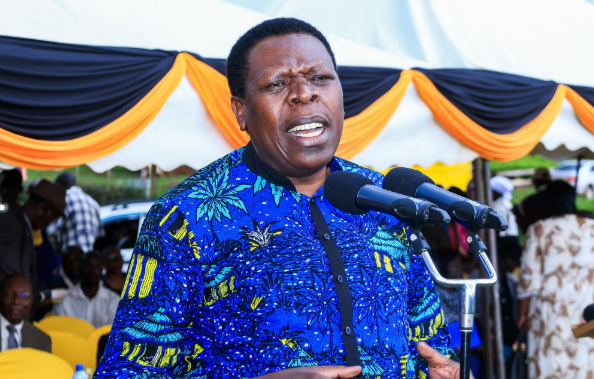
DAP-K leader Eugene Wamalwa has
condemned what he described as a deliberate attempt by the government to
sabotage Butere Girls' participation in the ongoing national drama festivals.
Wamalwa claimed that the students
were targeted in a move aimed at blocking their
performance.
He said that although the girls had
managed to get on stage, they were frustrated and ultimately forced to boycott
the event. They later left the venue in protest.
"The police have now started teargassing the crowds that have gathered, insisting that without Butere Girls, there will be no drama," Wamalwa stated.
Wamalwa spoke to NTV on Thursday morning from Nakuru—where Butere Girls were scheduled to perform their controversial play.
Addressing the status of former
Kakamega Senator Cleophas Malala, who wrote the play, Wamalwa said he had
contacted him on Wednesday night.
Together with lawyer Ken Echesa,
they went to Nakuru Central Police Station to check on Malala’s situation.
As of Thursday morning, Malala was
transferred to Eldama Ravine.
Wamalwa added that he and Echesa
were on their way to Eldama Ravine to seek Malala’s release.
The former senator has not yet been formally charged.
Wamalwa said police were accusing him of scripting a play
that "portrays the government as evil," an allegation Wamalwa
strongly refuted.
“As a lawyer, I’m not aware of any
such offence under the Kenyan law,” he said.
“This is a government that is afraid
of its own citizens, afraid of its own shadow and children. How do you prevent
students from expressing themselves through talent, song, and dance?” he asked.
He further alleged that the real
reason behind the suppression was fear of the play's potential success.
“We’re being told the play is too
good—that it might win. And if it wins, it would have to be performed at State
House during the gala. That’s what they’re trying to avoid. It’s not about
content; it’s about fear of being exposed.”
“Echoes of War” explores
contemporary issues like technology, governance and social justice,
particularly relevant to Gen Z, and the struggle for young people on civil
liberties.
The play centers on a nation recovering
from a civil war, with young citizens at the forefront of rebuilding efforts
and highlights the role of digital spaces in governance and the power of youth
in shaping societal change.












